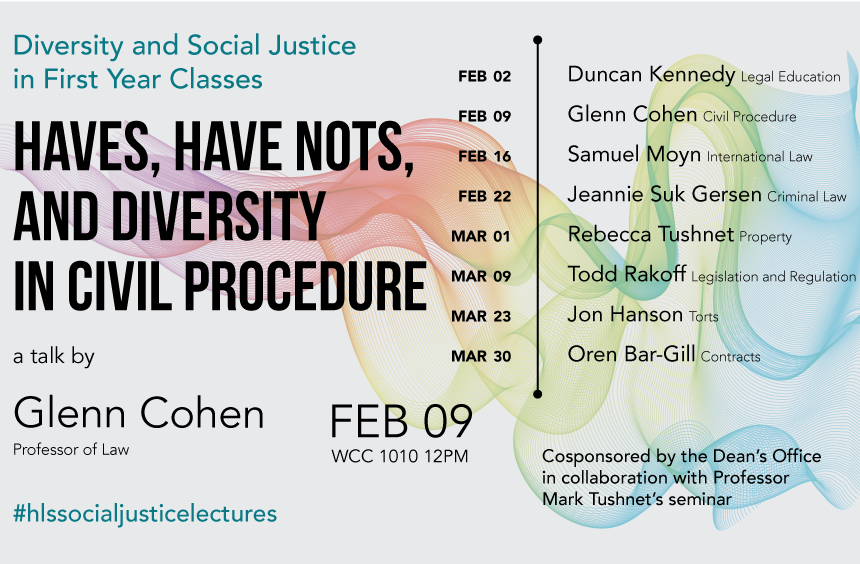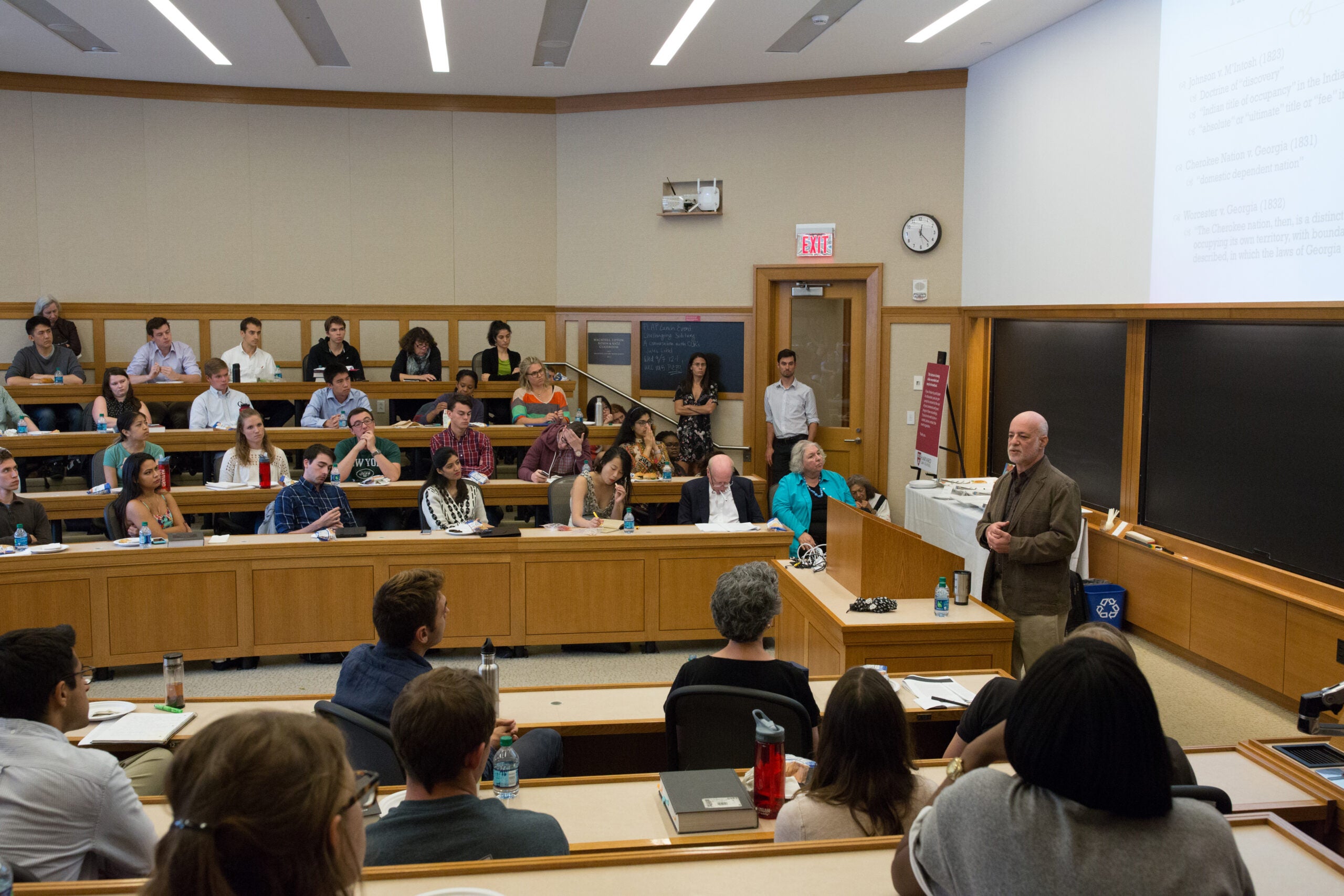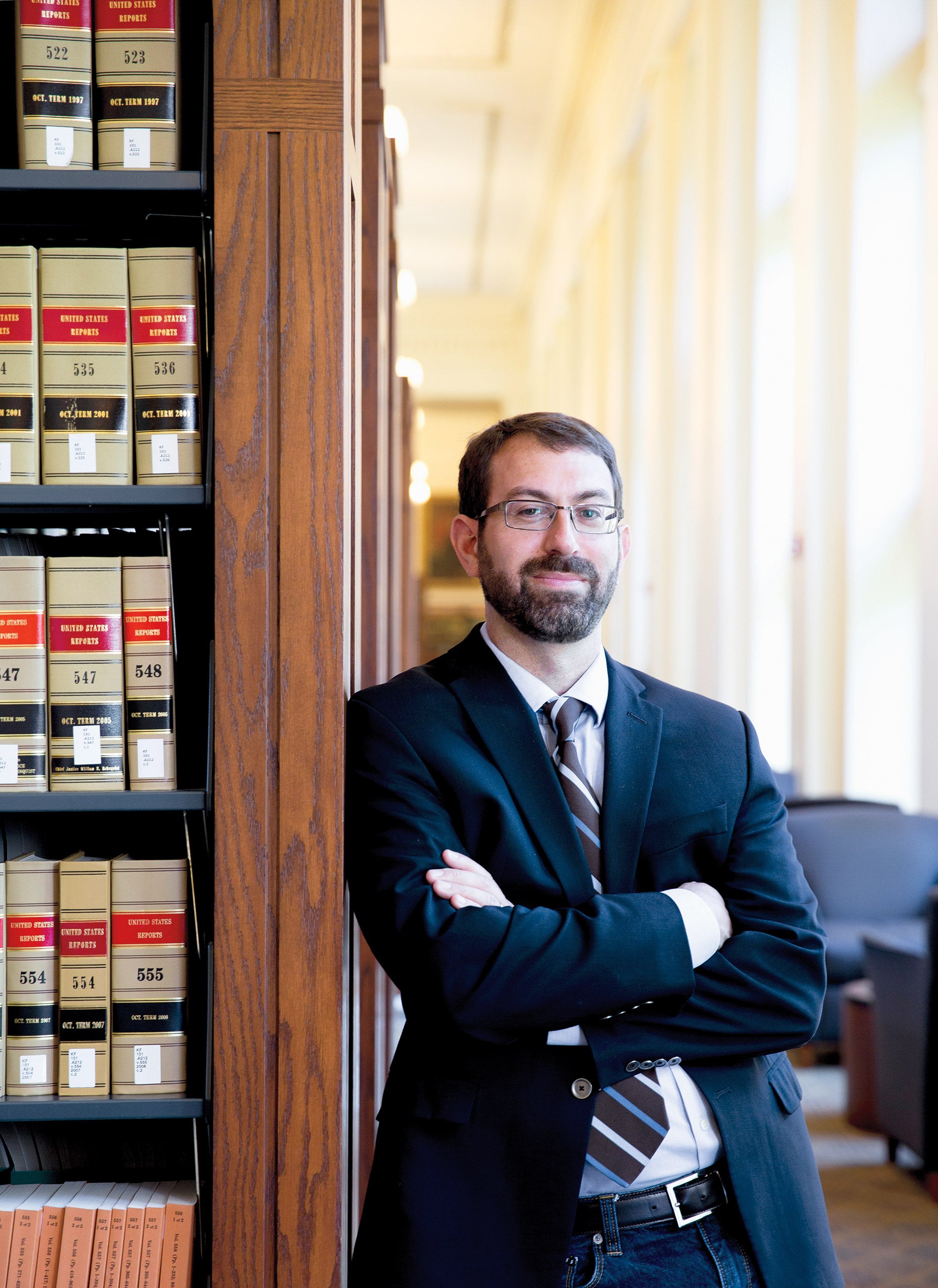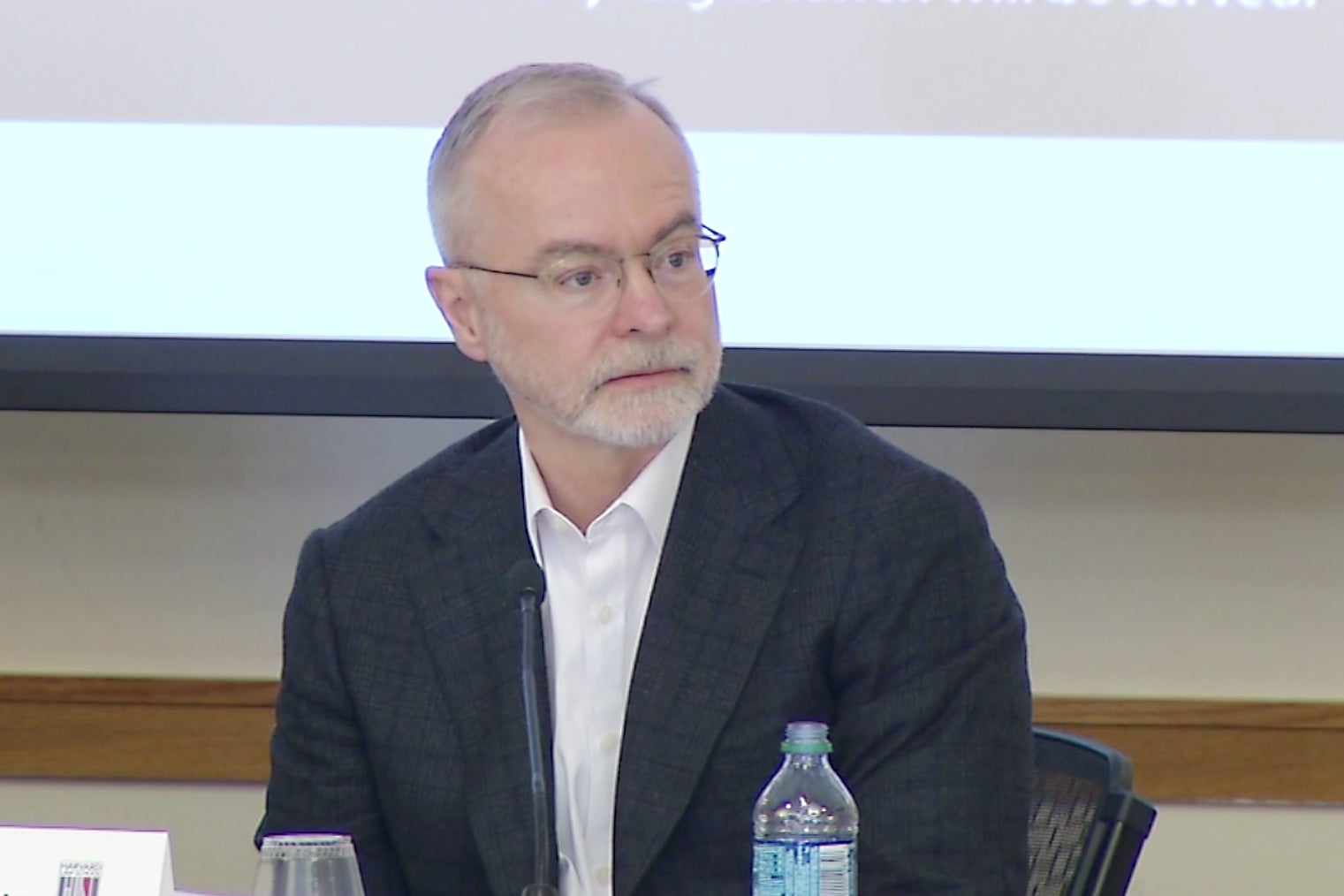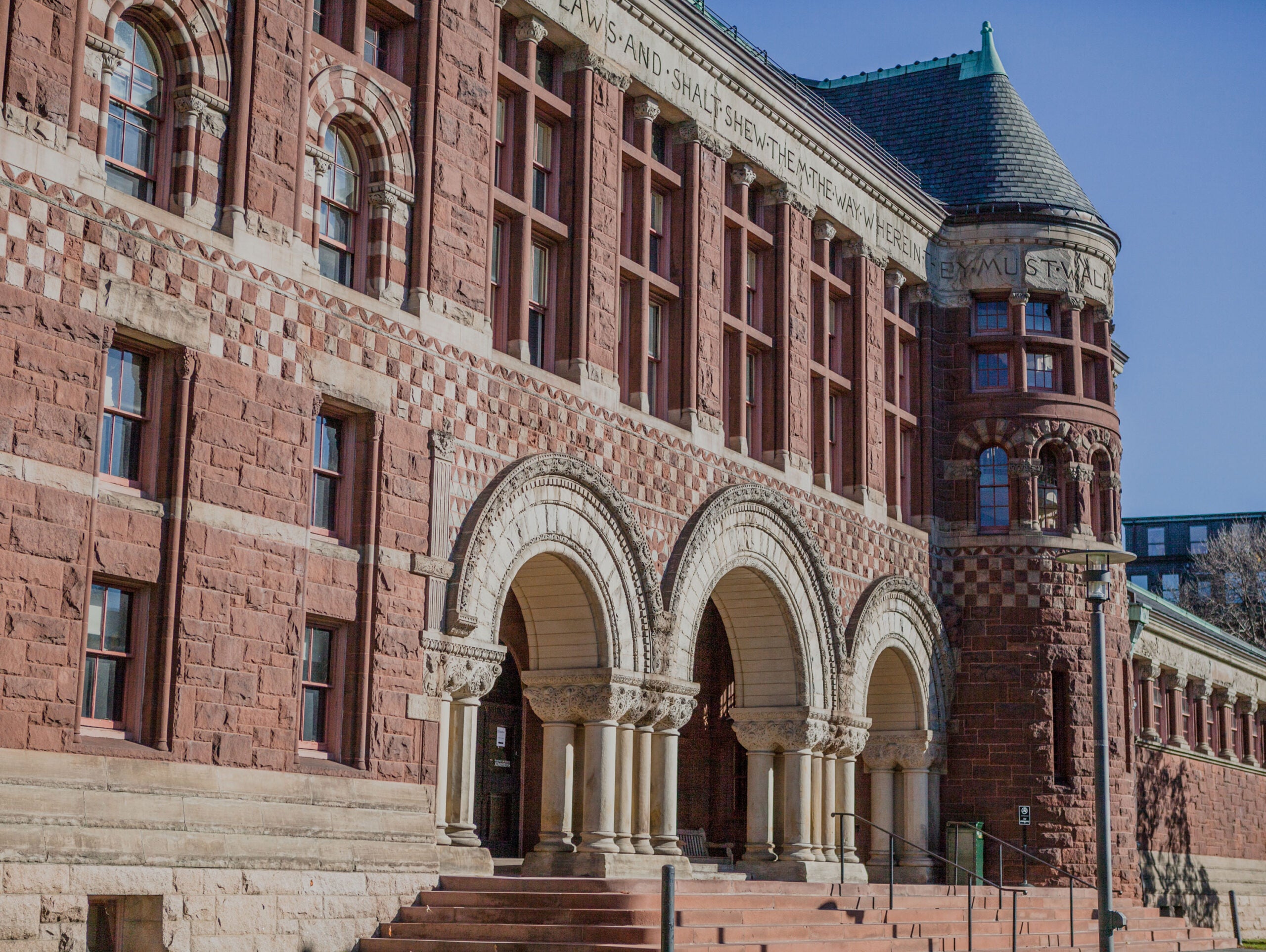People
Samuel Moyn
-
Look Back in Anger
January 31, 2017
A book review by Samuel Moyn...While Mishra long ago recognized the uses of Western thought in understanding the causes of global rage, in his new book, Age of Anger, he turns to intellectual history to counter civilizational or theological explanations for that rage in its more recent forms. After September 11, 2001, a crew of specialists arose to designate Islam the cause of hatred and violence; their essential goal was to immunize our own way of life from blame and scrutiny. Such analysts could never anticipate how their own states and cultures gave rise to a broader discontent—including in Europe and the United States. After votes for Brexit and Donald Trump, it turns out it was not just “radicalized” Muslim youths who resented elites and resorted to violence as a means of revenge.
-
Beyond Liberal Internationalism
January 13, 2017
An essay by Samuel Moyn. The foreign policy consequences of Donald Trump’s election are agonizingly unpredictable. As with any schoolyard braggart, Trump says so much that nobody can ever know which parts he might actually mean. Unlike the devil we knew, Trump defies any attempt to forecast his choices, and therefore to anticipate a response. But if progressives stick to a popular front strategy, uniting in a grand coalition allowing liberals and neoconservatives to define a more responsible approach to Trump’s foreign policy, they could miss the ripest opportunity they have had in a generation to indict the Democratic Party’s profound mistakes.
-
‘Muslims, immigrants concerned about Trump regime’
January 6, 2017
As the whole world speculates how US President-elect Donald Trump would shape the destiny of his country and the world, Harvard-based academic Samuel Moyn, who is in the city, tells Express about what might be in store. THIRUVANANTHAPURAM: As Donald Trump gets ready to assume office as the President of the United States, Muslims and immigrants who have been his targets during the election campaign, are seriously concerned about their future, says Samuel Moyn, Professor of Law and History at Harvard University. Moyn, a specialist in Human Rights and International Law, was in the city to deliver a lecture on the topic ‘Human Rights and Globalisation’. The lecture was organised by the Department of Law, University of Kerala.
-
Diversity and U.S. Legal History
December 7, 2016
During the fall 2016 semester, a group of leading scholars came together at Harvard Law School for the lecture series, "Diversity and US Legal History," which was sponsored by Dean Martha Minow and organized by Professor Mark Tushnet, who also designed a reading group to complement the lectures.
-
Trump and the limits of human rights
November 16, 2016
An op-ed by Samuel Moyn. The international human rights system, with its diverse global movements, is epoch-making, allowing stigma to be applied to errant states on matters of crucial global concern. But promoting its exclusive relevance in the face of injustice, as if the alternative were apathy or despair, is simply not going to cut it. In fact, the election of Donald Trump furnishes an opportunity to transcend the naïve celebration and apocalyptic criticism of international human rights in the name of balance about their true importance.
-
Freud’s Discontents
November 2, 2016
An article by Samuel Moyn. On the death of Sigmund Freud, W.H. Auden memorably observed that he was “no more a person now but a whole climate of opinion.” And this was 1939—he had seen nothing yet of Freud’s influence. Across the North Atlantic, Freud’s new science of psychoanalysis transformed common sense and was itself transformed in a host of new applications. In the humanistic disciplines, and especially in literary study, engagement with psychoanalysis became almost obligatory. The general public was equally enthralled by Freud’s ideas. His books circulated widely, on college campuses especially, and his thought traversed popular culture from fiction to film... In light of such wide influence, it is rather shocking how swiftly, if just beyond conscious notice, Freud’s relevance has waned in the past two decades.
-
A Work in Progress
October 21, 2016
Harvard Law Professor Samuel Moyn ’01 discusses the potential and the limitations of the human rights movement when it comes to creating just societies.
-
How Civil Liberties Went Mainstream
September 26, 2016
A book review by Samuel Moyn. During World War I, Roger Nash Baldwin was running a rag tag organization called the American Union against Militarism when he decided to create a civil liberties bureau, in part because he felt that defending conscientious objection to conscription would serve his wider pacifist goals. He knew that there was no mention of “civil liberties” in the United States Constitution—and that even the phrase itself would be unfamiliar, since it had not much figured in political rhetoric before...Over the course of those three decades, as the story is usually told, Americans were convinced to honor free speech in new ways thanks to heroic judges who had the good sense to agree with civil libertarians. The starring role in this tale is given to Justice Oliver Wendell Holmes...Laura Weinrib overturns this simple narrative in her utterly brilliant new book. “The Taming of Free Speech: America’s Civil Liberties Compromise” shows that civil libertarian politics originated out of a trade-unionist movement for economic justice, and that its conscious choice to frame itself as serving constitutional principles above the political fray ironically disarmed the progressive movement out of which it was born.
-
How Human Rights Were Used to Hurt the USSR and Blunt the Left
September 13, 2016
The story goes that human rights rhetoric took down the Soviet Union. The USSR couldn’t stand up to the propaganda onslaught, led by internal and external dissidents propelled by newly-minted human rights language. But the story has more to it, Samuel Moyn, Harvard law and history professor and author of The Last Utopia: Human Rights in History, told teleSUR. The Soviet constitution of 1936 “offered more human rights to its citizens than any state in human history”—especially in what would later become known as social and economic rights—he said, but it couldn’t stand up to the romantic moralism of the West. No matter that the United States had not ratified key human rights covenants that the USSR had: one side was weaker and came up short in the war of words.
-
Why the War on Terror May Never End
June 27, 2016
A book review by Samuel Moyn. Since the Greeks, we have known of blood feuds of violence and vengeance that repeat in endless cycles, with new rounds only taking the catastrophe further out of control. And since the Greeks, escape routes have been identified and sought — Aeschylus hoped law could provide reconciliation; Jesus later claimed this power for love. But in his disturbing new book, “Spiral,” Mark Danner worries there is no way out of today’s “forever war,” which continues unabated after 15 years. Danner spares no analogy, classical or modern, to raise awareness of this predicament. In our spiral, he says, we are both like Cadmus sowing dragon’s teeth — our victories produce new adversaries — and like the madcap inventors of a perpetual motion machine that continuously recreates the problem it was designed to solve.
-
Local Roots, Universal Rights
June 6, 2016
A book review by Samuel Moyn. A few years ago, the British human-rights lawyer Philippe Sands received an invitation to give a lecture in Lviv, Ukraine, the city where his grandfather had been born and lived as a young man. As he prepared his lecture on genocide and crimes against humanity, Mr. Sands learned that the two men responsible for those very concepts—and thus for his own professional concerns—were also intimately connected with the Galician town, which since World War I has passed from Austro-Hungarian through Polish, German, Soviet and Ukrainian hands. One of these two Jewish lawyers, Hersch Lauterpacht, was born near Lviv and spent much time there. The other, Rafael Lemkin, trained in law at the city’s university, where he and Lauterpacht shared some influential teachers. They were also both present at the Nuremberg trials, where the legal concepts they had each forged were pioneeringly used in the case against the Nazis.
-
Rights vs. Duties
May 16, 2016
An article by Samuel Moyn. In 1947 Julian Huxley, English evolutionary theorist and director-general of UNESCO, wrote Mohandas Gandhi to ask him to contribute an essay to a collection of philosophical reflections on human rights. Gandhi declined. “I learnt from my illiterate but wise mother,” he replied, “that all rights to be deserved and preserved came from duty well done. Thus the very right to live accrues to us only when we do the duty of citizenship of the world.” Huxley should not have been surprised by the rejection. As far back as Hind Swaraj (1909), his masterpiece in political theory, Gandhi had bemoaned “the farce of everybody wanting and insisting on . . . rights, nobody thinking of . . . duty.” And during World War II, when another Englishman, H. G. Wells, solicited Gandhi’s support for his bill of rights defining war aims, the mahatma recommended that Wells write a cosmopolitan charter of duties instead—a statement of what citizens of the world owe to each other...So we are now very familiar with the claim that all humans everywhere have rights. But we are much less familiar with the notion that rights are protected by the fulfillment of duties.
-
You Must Remember This
May 4, 2016
An article by Samuel Moyn. The duty to remember—especially to remember victims lost to political evil—has become one of the most commanding mantras of our culture. Yet it is astonishing how recently this imperative became so authoritative. Kings have raised monuments to their own alleged greatness for millennia, but commemoration of the dead of the wars of nations reached its apogee only in the early twentieth century with the end of World War I and now-familiar invocations of the heroism and self-sacrifice of soldiers for the sake of the nation’s political fortunes.
-
Are human rights really universal?
April 19, 2016
An interview with Sam Moyn: In the aftermath of the Second World War, the 1948 Universal Declaration of Human Rights proclaimed a set of rights for all humankind, belonging to each of us simply by virtue of being human. Universalism - that they belong to everyone, everywhere - is the key idea that grounds human rights, it gives them meaning, application and authority. Talking to legal philosophers, historians, sceptics and advocates, Helena Kennedy QC explores the philosophical and historical foundations of human rights. Are they really universal or is this just moral posturing on a grand scale, a legal fiction, a philosophical sleight of hand?
-
In his latest book, 'A World of Struggle: How Power, Law, and Expertise Shape Global Political Economy,' Professor David Kennedy points to widespread uncertainty and ambivalence about the world and explores 'the role of expertise and professional practice in the routine conflicts through which global political and economic life takes shape.'
-
An op-ed by Sam Moyn: The most interesting question to ask about the Universal Declaration of Human Rights, passed by the United Nations General Assembly on 10 December 1948, is why it was ignored in its own time, even as it is celebrated in our own. The reason, I believe, is that the document reflected not a breakthrough internationalist minimalism but a small part of a familiar nationalist welfarism, in which a concern for civil liberties was not separated from economic and social entitlements.
-
Harvard Corporation agrees to retire HLS shield
March 14, 2016
The Harvard Corporation has approved the recommendation of the Harvard Law School Shield Committee to retire the HLS shield, which is modeled on the family crest of an 18th century slaveholder.
-
Law School committee recommends retiring current shield
March 4, 2016
A committee of Harvard Law School faculty, students, alumni, and staff established in November by Dean Martha Minow has recommended to the Harvard Corporation that the HLS shield — which is modeled on the family crest of an 18th century slaveholder — no longer be the official symbol of Harvard Law School.
